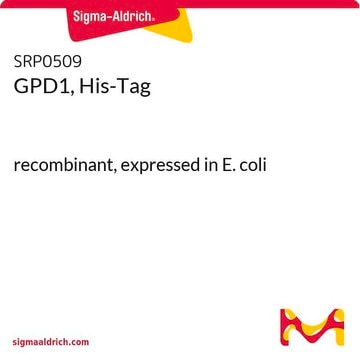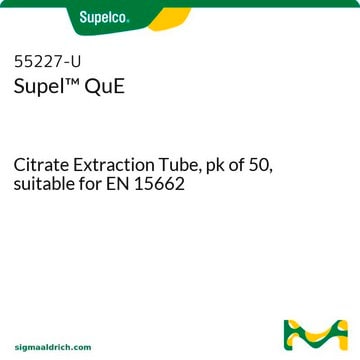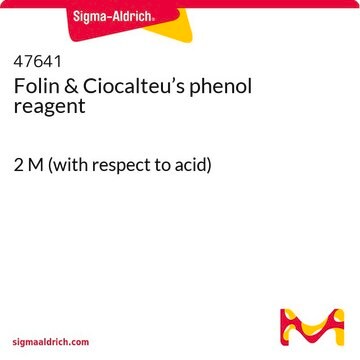推荐产品
生物来源
rabbit
偶联物
unconjugated
抗体形式
affinity isolated antibody
抗体产品类型
primary antibodies
克隆
polyclonal
表单
buffered aqueous glycerol solution
种属反应性
human
增强验证
orthogonal RNAseq
Learn more about Antibody Enhanced Validation
技术
immunoblotting: 0.04-0.4 μg/mL
immunohistochemistry: 1:50-1:200
免疫原序列
PNVVAVPDVVQAAEDADILIFVVPHQFIGKICDQLKGHLKANATGISLIK
UniProt登记号
运输
wet ice
储存温度
−20°C
靶向翻译后修饰
unmodified
基因信息
human ... GPD1(2819)
一般描述
Glycerol-3-phosphate dehydrogenase 1 (GPD1) is encoded by the gene mapped to human chromosome 12q13.12. The encoded protein is a member of NAD-dependent glycerol-3-phosphate dehydrogenase family. GPD1 is a cytoplasmic protein with NAD_Gly3P_dh_N and NAD_Gly3P_dh_C domains.
免疫原
glycerol-3-phosphate dehydrogenase 1 (soluble) recombinant protein epitope signature tag (PrEST)
应用
All Prestige Antibodies Powered by Atlas Antibodies are developed and validated by the Human Protein Atlas (HPA) project and as a result, are supported by the most extensive characterization in the industry. The Human Protein Atlas project can be subdivided into three efforts: Human Tissue Atlas, Cancer Atlas, and Human Cell Atlas. The antibodies that have been generated in support of the Tissue and Cancer Atlas projects have been tested by immunohistochemistry against hundreds of normal and disease tissues and through the recent efforts of the Human Cell Atlas project, many have been characterized by immunofluorescence to map the human proteome not only at the tissue level but now at the subcellular level. These images and the collection of this vast data set can be viewed on the Human Protein Atlas (HPA) site by clicking on the Image Gallery link. We also provide Prestige Antibodies® protocols and other useful information.
Glycerol-3-phosphate dehydrogenase 1(GPD1) has been used in western blot analysis.
生化/生理作用
Glycerol-3-phosphate dehydrogenase 1 (GPD1) facilitates the reversible conversion of dihydroxyacetone phosphate (DHAP) and reduced nicotine adenine dinucleotide(NADH) to glycerol-3-phosphate (G3P) and nicotinamide adenine dinucleotide (NAD+). GPD1 along with a mitochondrial enzyme, glycerol-3 phosphate dehydrogenase 2 (GPD2), plays an essential role in carrying reducing equivalents from the cytosol to the mitochondria.1It also stimulates growth under osmotic stress. Loss of gene function inhibits glycerol production, retard growth at all under anoxic conditions and strong osmosensitivity. Mutation in the gene is associated with the development of transient infantile hypertriglyceridemia, fatty Liver and hepatic fibrosis.
特点和优势
Prestige Antibodies® are highly characterized and extensively validated antibodies with the added benefit of all available characterization data for each target being accessible via the Human Protein Atlas portal linked just below the product name at the top of this page. The uniqueness and low cross-reactivity of the Prestige Antibodies® to other proteins are due to a thorough selection of antigen regions, affinity purification, and stringent selection. Prestige antigen controls are available for every corresponding Prestige Antibody and can be found in the linkage section.
Every Prestige Antibody is tested in the following ways:
Every Prestige Antibody is tested in the following ways:
- IHC tissue array of 44 normal human tissues and 20 of the most common cancer type tissues.
- Protein array of 364 human recombinant protein fragments.
联系
Corresponding Antigen APREST81141
外形
Solution in phosphate buffered saline, pH 7.2, containing 40% glycerol and 0.02% sodium azide.
法律信息
Prestige Antibodies is a registered trademark of Merck KGaA, Darmstadt, Germany
免责声明
Unless otherwise stated in our catalog or other company documentation accompanying the product(s), our products are intended for research use only and are not to be used for any other purpose, which includes but is not limited to, unauthorized commercial uses, in vitro diagnostic uses, ex vivo or in vivo therapeutic uses or any type of consumption or application to humans or animals.
未找到合适的产品?
试试我们的产品选型工具.
储存分类代码
10 - Combustible liquids
WGK
WGK 1
闪点(°F)
Not applicable
闪点(°C)
Not applicable
Transient infantile hypertriglyceridemia, fatty liver, and hepatic fibrosis caused by mutated GPD1, encoding glycerol-3-phosphate dehydrogenase 1.
Basel-Vanagaite L
American Journal of Human Genetics, 90, 49-60 (2012)
The two isoenzymes for yeast NAD+-dependent glycerol 3-phosphate dehydrogenase encoded by GPD1 and GPD2 have distinct roles in osmoadaptation and redox regulation.
Ansell R
The Embo Journal, 16, 2179-2187 (1997)
Mugdha Joshi et al.
European journal of human genetics : EJHG, 22(10), 1229-1232 (2014-02-20)
The constellation of clinico-pathological and laboratory findings including massive hepatomegaly, steatosis, and marked hypertriglyceridemia in infancy is extremely rare. We describe a child who is presented with the above findings, and despite extensive diagnostic testing no cause could be identified.
A compound heterozygous mutation in GPD1 causes hepatomegaly, steatohepatitis, and hypertriglyceridemia.
Joshi M
European Journal of Human Genetics, 22, 1229-1232 (2014)
Francesco Maria Iena et al.
Frontiers in endocrinology, 11, 577650-577650 (2020-11-17)
Obesity is associated with increased plasma glycerol levels. The coordinated regulation of glycerol channels in adipose tissue (AQP7) and the liver (AQP9) has been suggested as an important contributor to the pathophysiology of type-2-diabetes mellitus, as it would provide glycerol
Active Filters
我们的科学家团队拥有各种研究领域经验,包括生命科学、材料科学、化学合成、色谱、分析及许多其他领域.
联系技术服务部门









